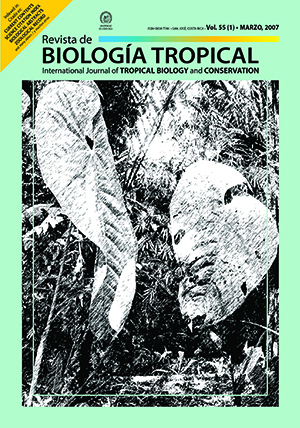Abstract
Two leech species were found parasitizing the shrimp Cryphiops caementarius from Limarí river, Chile. These ectoparasites can act as population regulators or development inhibitors in their host; however the biological characteristics of this host-parasite interaction are unknown. We analyze the inter-specific differences of the parasitism and its relation with host size and sex using quantitative descriptors. Abundance, prevalence, intensity and range were estimated with respect to host size and sex. The leeches belong to two species of Glossiphonidae: Helobdella triserialis and H. duplicata. Forty-seven percent of the hosts were parasitized by one or both leech species. H. triserialis was found only in the pleopod of the hosts with the highest prevalence values (42 %), intensity (2.9) and range (1-11). H. duplicata was found only in the branchial filaments with 7 % prevalence, an intensity of 1.7 and a range of 1-4. The host’s total length and sex can explain the variation in leech intensity and infection prevalence. However, when only the host’s sex is considered, prevalence only increased with size in female hosts. Morphological characteristics of the females could explain the greater H. triserialis intensity in the base of the pleopod and would be related to a greater abdomen development.
Comments

This work is licensed under a Creative Commons Attribution 4.0 International License.
Copyright (c) 2007 Revista de Biología Tropical






